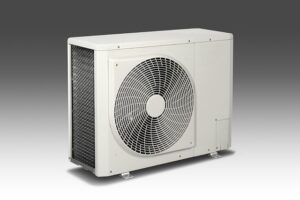In regions with freezing temperatures, traditional tank-based water heaters fail due to frozen pipes and reduced efficiency. Instant water heaters offer a game-changing solution by providing continuous hot water without storage tanks, addressing energy efficiency concerns and saving space. Ideal for both residential and commercial use in harsh winters, these electric or gas-powered heaters ensure comfortable living spaces and warm showers year-round. They save energy and utility costs compared to whole house systems, making them perfect for cold-climate regions. With advanced insulation and smart technology, instant water heaters are gaining popularity for their reliability and sustainability.
In cold-climate regions, efficient water heating presents unique challenges. Traditional systems struggle with prolonged cold temperatures, leading to increased energy consumption and potential freezing issues. This article explores a revolutionary solution: freeze-resistant instant water heaters. We delve into the specific needs of these areas, dissecting the benefits of instant water heaters and highlighting key features that make them robust in freezing conditions. Additionally, we discuss their effectiveness in tackling winter water heating woes and their growing market presence.
- Understanding the Challenges of Cold-Climate Regions for Water Heating
- Introduction to Instant Water Heaters and Their Benefits
- Key Features of a Freeze-Resistant Model
- How This Technology Overcomes Winter Water Heating Issues
- Market Availability and Future Prospects for Cold-Weather Solutions
Understanding the Challenges of Cold-Climate Regions for Water Heating

In cold-climate regions, water heating presents unique challenges due to prolonged periods of freezing temperatures. Traditional tank-based water heaters often struggle in such environments, leading to issues like frozen pipes and reduced efficiency. This is particularly problematic for areas with harsh winters where continuous hot water demand remains high. The need for a reliable and efficient water heating solution that can withstand freezing conditions is more crucial than ever.
Enter the freeze-resistant instant water heater—a game-changer designed specifically for these regions. Unlike tankless water heating systems or on-demand hot water heaters, which might have limitations in extreme cold, this innovative technology offers continuous water heating without the need for a storage tank. Electric or gas instant heaters, including point-of-use models, provide quick and efficient hot water, ensuring folks can enjoy warm showers and comfortable living spaces even during the coldest months. This not only addresses energy efficiency concerns but also saves valuable space typically occupied by traditional tanks, making them ideal for both residential and commercial whole house systems in cold-climate territories.
Introduction to Instant Water Heaters and Their Benefits

Instant water heaters have gained popularity for their numerous benefits, especially in regions with cold climates where efficient and continuous hot water access is essential. These innovative systems offer a significant departure from traditional tank-based water heaters. Instead of storing hot water in a reservoir, they deliver hot water on demand, providing an immediate and constant supply. This feature is particularly advantageous during harsh winters when the need for hot water increases, ensuring folks can enjoy warm showers, cook with ease, or wash dishes without delay.
The benefits of instant water heaters are multifaceted. Firstly, they eliminate the need for large storage tanks, making them space-saving solutions ideal for smaller homes or areas with limited space. Secondly, tankless water heating technology ensures energy efficiency as heat is generated only when needed, reducing energy wastage compared to traditional systems that keep water heated constantly. This not only lowers utility bills but also contributes to a more sustainable lifestyle. Moreover, point-of-use heaters can be installed for specific fixtures or appliances, providing hot water directly at the source, which further enhances efficiency. Whether powered by electricity or gas, instant hot water systems offer convenience and comfort while promoting energy conservation.
Key Features of a Freeze-Resistant Model

A freeze-resistant instant water heater is designed to withstand harsh cold-climate conditions while providing reliable hot water on demand. Key features include advanced insulation and a robust exterior to protect internal components from freezing temperatures. These models often incorporate smart technology for energy efficiency, allowing them to adjust heating levels based on usage, which reduces energy consumption and lowers operating costs.
Unlike traditional tanked water heaters or whole house systems like gas instant heaters or electric instant heaters, tankless water heating offers a space-saving solution with continuous water heating. Point of use heaters are ideal for specific applications, ensuring hot water is readily available without the need for large storage tanks. This not only minimizes heat loss but also enhances convenience, making it perfect for remote areas or as an upgrade to existing plumbing systems.
How This Technology Overcomes Winter Water Heating Issues

Winter can pose significant challenges when it comes to reliable hot water supply in cold-climate regions. Traditional tank-based water heaters often struggle with energy efficiency and may not provide continuous hot water during prolonged use, especially in colder months. This is where an instant water heater steps in as a game-changer.
The technology behind these innovative devices offers a solution by eliminating the need for a storage tank. With on-demand hot water systems, users enjoy instant access to hot water without any delays or energy wastage. Unlike tankless water heating methods, which may have limited flow rates, modern instant heaters provide a steady and consistent supply of hot water throughout the day. This ensures that residents in snowy regions can enjoy warm showers and efficient space-saving heaters without worrying about cold water surprises during winter. Moreover, electric or gas instant heaters are energy-efficient, reducing utility costs compared to traditional whole house systems.
Market Availability and Future Prospects for Cold-Weather Solutions

As cold-climate regions face increasing demands for reliable hot water solutions, the market is witnessing a surge in the availability of freeze-resistant instant water heaters. These innovative systems offer on-demand hot water, eliminating the need for traditional tanked water heaters that can be susceptible to freezing during prolonged cold spells. In terms of technology, both electric and gas instant heaters are gaining traction due to their energy efficiency and space-saving designs. Electric models are particularly popular in residential settings, while gas instant heaters find application in commercial and industrial spaces requiring continuous water heating.
Looking ahead, the future prospects for cold-weather solutions in the water heating sector remain promising. The growing emphasis on sustainability and environmental concerns is driving the adoption of tankless water heating technologies, which not only provide efficient heat but also reduce energy consumption. Moreover, as buildings become smarter and more connected, point-of-use heaters integrated with advanced control systems will likely gain prominence. This integration promises improved comfort, enhanced safety features, and further optimized energy usage, making instant hot water systems an attractive option for both new constructions and retrofits in cold regions worldwide.
In conclusion, freeze-resistant instant water heaters offer a promising solution for cold-climate regions, addressing the unique challenges of winter water heating. With their rapid heating and energy efficiency, these innovative devices are transforming the way we access hot water in harsh environments. As market availability expands, adopting this technology can ensure consistent hot water supply while promoting sustainable practices, making it a game-changer for folks living in bustling cold-weather regions.






